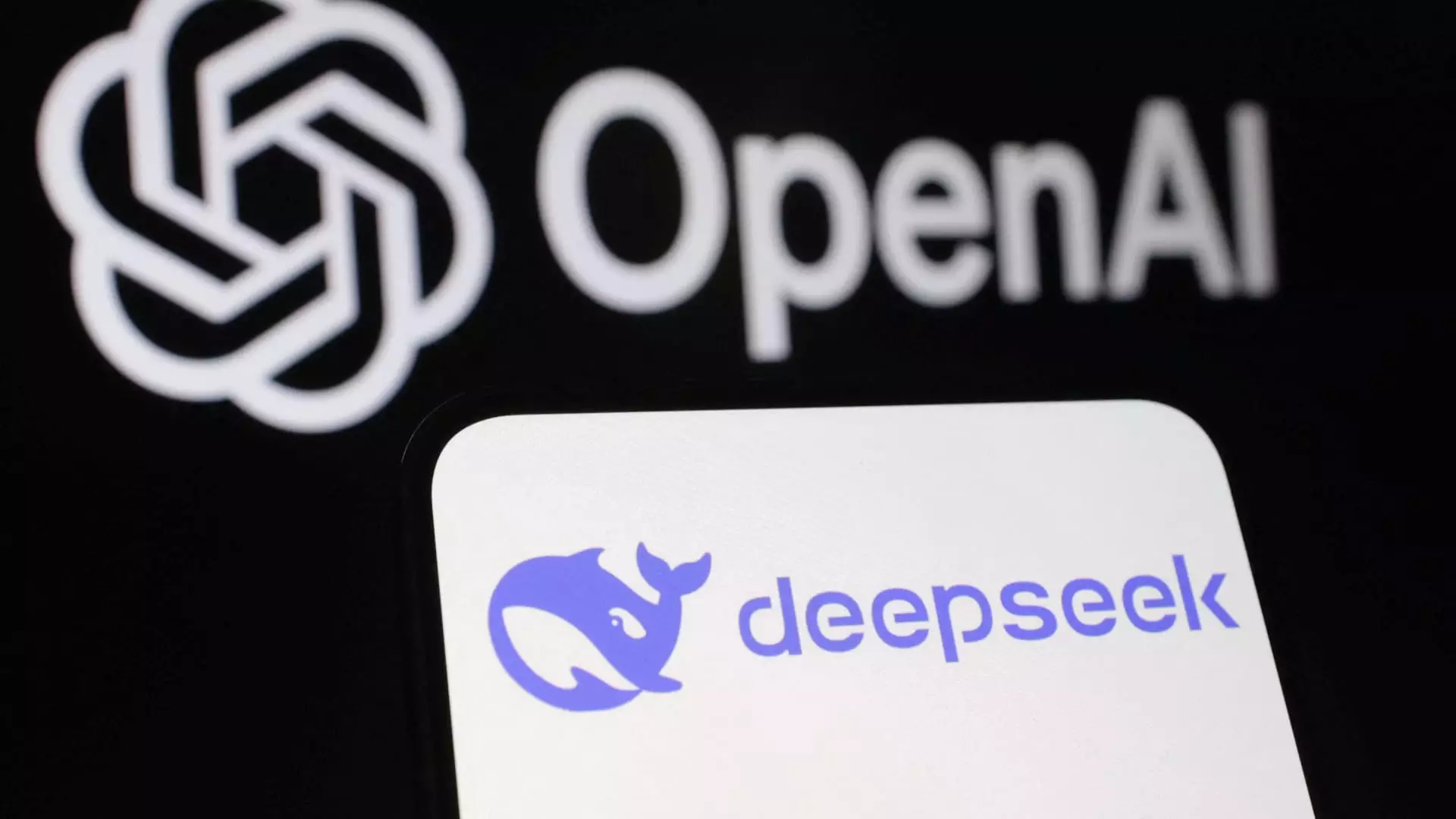The emergence of DeepSeek, a nascent AI startup from China, has sent ripples throughout the technology sector, prompting a seismic shift in investor sentiment and crashing stock prices for major U.S. tech firms. Founded by Liang Wenfeng in May 2023, DeepSeek quickly distinguished itself with an innovative approach to artificial intelligence that questions the spending strategies of American tech giants. This development not only complicates the narrative around established industry players like Nvidia but also raises ethical, economic, and strategic questions relevant to the future of AI technology.
DeepSeek’s Breakthrough Model
DeepSeek launched its open-source large language model in late December, heralding a significant technological advancement achieved at a surprisingly low cost of under $6 million. The flagship product, known as R1, quickly attracted attention following its impressive performance in tests compared to the latest models from American competitors. What makes R1 particularly noteworthy is its “chain of thought” reasoning capability, which enhances its response accuracy. By simulating a thought process before arriving at a conclusion, DeepSeek’s model attempts to mimic human-like reasoning in a way that previous models have struggled to achieve.
This model’s development in just two months is a testament to the rapid pace of innovation occurring within Chinese tech, positioning DeepSeek to challenge its U.S. competitors rigorously. Industry experts have begun to recognize it as a serious contender in the fierce AI race, casting shadows on the conventional wisdom that American technology firms lead across the board.
The ramifications of DeepSeek’s entry into the market were immediate. Investors in U.S. tech stocks reacted swiftly, resulting in a significant sell-off that saw Nvidia’s shares tumble by more than 12%—its worst drop since March 2020. The concerns about DeepSeek’s capabilities not only impacted chip manufacturers, like Nvidia, but also reverberated through the entire tech ecosystem. Companies invested heavily in AI, particularly those reliant on data center demand, found their prospects dimming under the weight of potential competition from DeepSeek’s cost-effective solutions.
The confidence that propelled the bull market in U.S. tech over the past two years has been shaken, as investors grapple with the reality that billions of dollars in AI spending may not guarantee sustained profitability if a more competitive alternative emerges.
As news about DeepSeek spread, influential voices in the tech and venture capital worlds weighed in. Executives like Alexandr Wang, CEO of Scale AI, affirmed that DeepSeek’s offerings stand shoulder to shoulder with the best currently available in the market. This milestone underscores the gravity of DeepSeek’s achievement, especially given the geopolitical landscape, including U.S. restrictions on advanced AI chip sales to China.
Marc Andreessen, a prominent venture capitalist, lauded R1 as an extraordinary breakthrough, elevating the startup’s profile significantly. The enthusiasm surrounding DeepSeek was further amplified by notable social media discussions that saw its mobile application surge to the top of Apple’s app store. Such public accolades played a significant role in propelling investor interest and intensified scrutiny on established competitors.
Despite DeepSeek’s initial victories, it faces considerable challenges as it seeks to secure its position in the global AI marketplace. The firm must navigate the complexities of international regulations, competitive responses from entrenched players, and the ongoing tech Cold War dynamics that could restrict access to critical technologies and resources.
Moreover, as the AI landscape evolves, ethical considerations surrounding AI deployment, data usage, and potential bias in AI models require careful attention. DeepSeek must execute its vision with responsibility, gaining the public’s trust amidst an expanding scrutiny of AI’s implications.
The market turbulence instigated by DeepSeek’s rapid ascent illuminates the shifting tides of the AI sector. As U.S. giants recalibrate their strategies in response to this newfound competition, a more diverse and possibly fragmented AI marketplace may emerge. The future of artificial intelligence now holds an unpredictable narrative, with new players like DeepSeek showcasing the potential to disrupt the established order and redefine innovation standards in the industry. The journey ahead will be as illuminating as the technologies being developed, shaping the future of AI in a manner that extends well beyond conventional boundaries.

